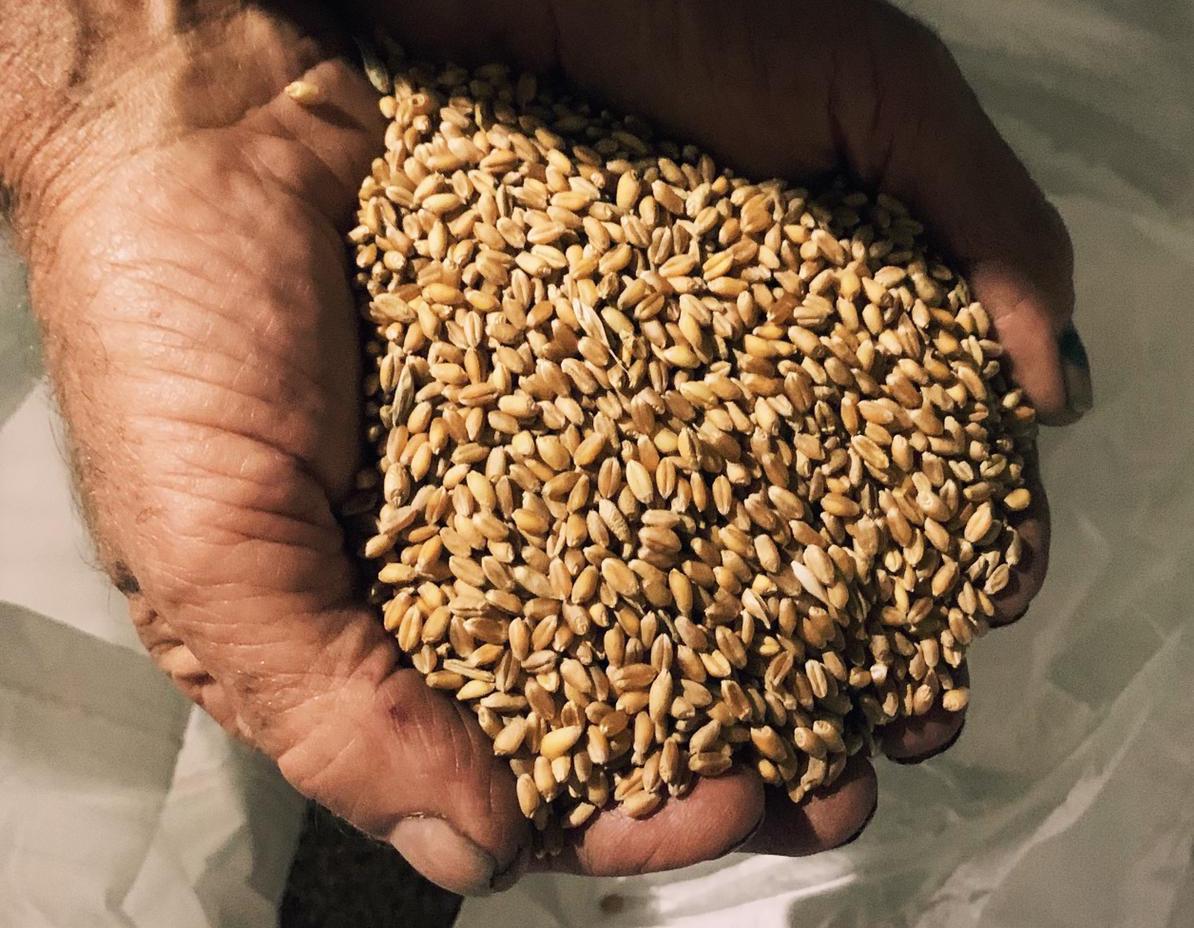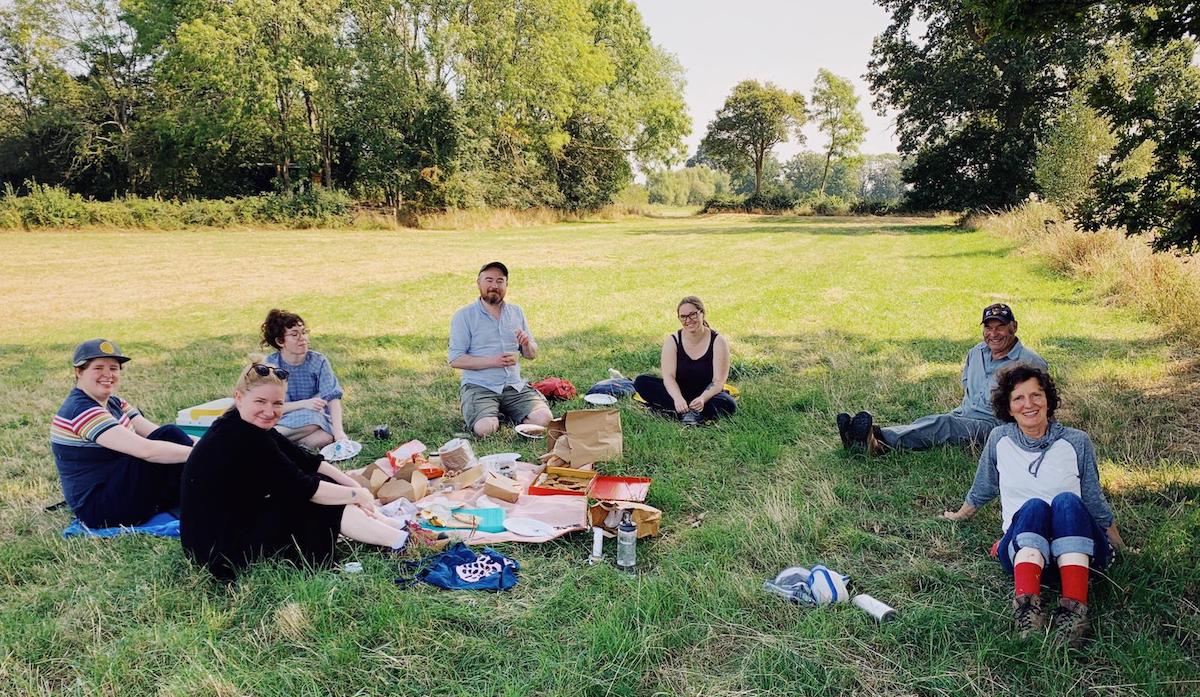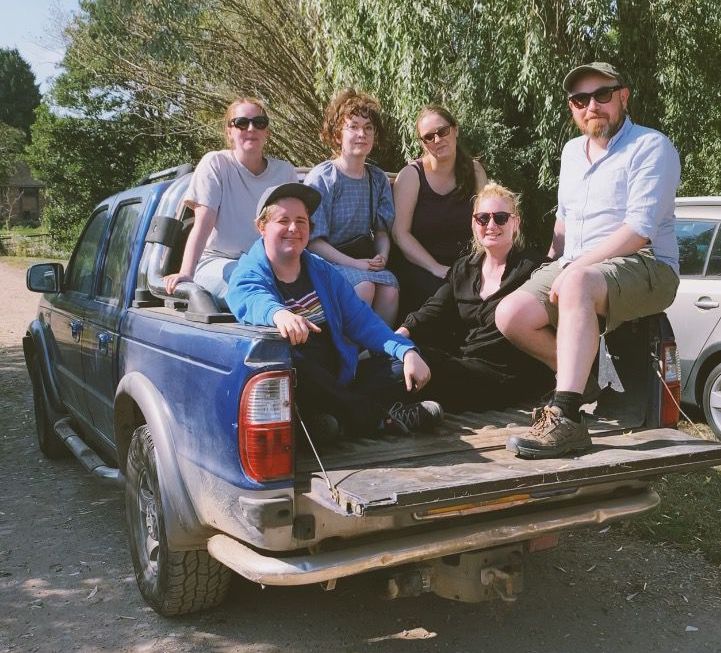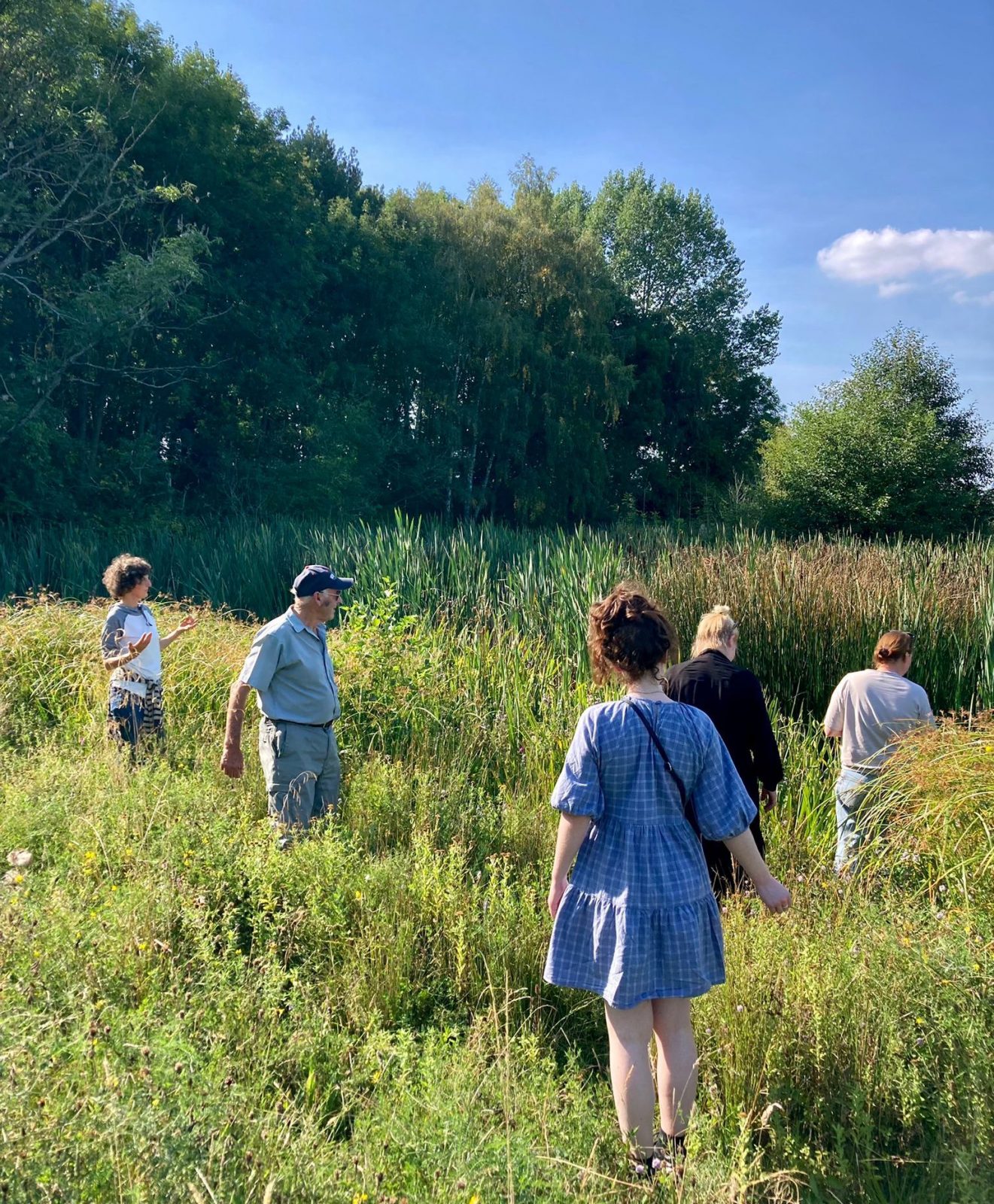
Six of Loaf went on a road trip last week. Here’s Sarah to tell you what we got up to.
Jonathan, the owner of Mill Farm near Worcester, has been farming for over 50 years, so he’s seen a lot. But in the last few years he’s had to radically rethink how he approaches farming. The industry has been ravaged by politics and overwhelmed by the constant demand to supply more at lower margins. The land can’t bear it and something needs to change.
His neighbour Emma, inspired by the work of the South West Grain Network, convinced him to start growing heritage wheat varieties and a second yield was harvested this year. Emma contacted Loaf last summer asking if we’d like to buy some of it, and even if we didn’t, would we like to come and have a look around the farm?
She finished her email with the following:
“Our main aim is to re-imagine the food system where small-scale regenerative farming systems are producing nutrient-rich, tasty food in healthy soils, re-building short supply chains, and a new grain economy that is full of personality and traceability. If this aim resonates with you, then I look forward to hearing from you even if the purpose is simply to stimulate a Midlands bread and grain network.”

A couple of weeks ago we visited Mill Farm to meet Jonathan and Emma to find out more. We took some of our bread and shared a picnic under the shade of a massive oak. Sitting in one of the recently harvested fields, Jonathan told us about his plans.
One way to keep a farm alive is to get clever, creating a sustainable environment for better crops to grow without exhausting the land — from crop rotation to conserve the land, to wild flower areas to encourage pollinators, to making big decisions about what to grow and what to not grow.
Jonathan has won awards for his conservation efforts, and it really shows. We piled on the back of his truck for a tour around his fields, seeing how he has mindfully chosen to invest in the land, protecting the environment and conserving it for the future.

Growing heritage and ancient grains is a learning curve and comes at a cost, however. Can you imagine investing so much in such a large area of land with all that is going on in the world? Farming is highly exposed to such uncertainty. So much is out of the farmer’s control.
Jonathan could grow a standard commodity grain, but he and Emma want to do better. Fundamentally, they want healthy land, they want to grow grain that is tasty, they want to keep it interesting and they want to make a living from it.
I think that’s what resonates so much for me, because I see the same fundamentals in our coop at Loaf. We don’t cut corners and we aren’t chasing easy profits. We want balance. A great product that honours the grain and the land it grew on.

We were all so inspired to listen to how their new farming strategy is unfolding. It was a delight to learn from them, and we are particularly excited to take home some of the grains that they are growing.
As you’ll know, we are new to the heritage grain scene too. For us bakers this opens up a whole new world of flavour, texture and nutrition.
We really connected with Mill Farm on so many levels and look forward to bringing their grain to our loaves and onto your plates. We truly hope this is the start of a beautiful friendship.